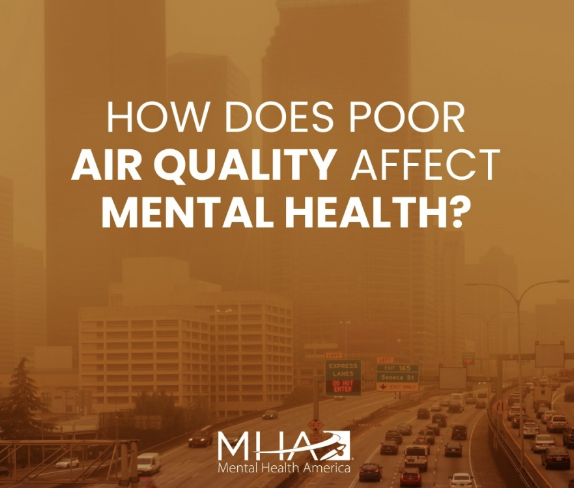
As the thick wildfire smoke from Canada continues to blanket the region, the global pollution index still shows unhealthy air quality conditions. High concentrations of particulate matter in the smoke can cause serious health conditions, especially for sensitive populations - including asthma attacks, heart attacks, strokes, and death.
Poor air quality can also affect your mental health. A 2022 study on outdoor air pollution, mental health, and human/animal brains found that exposure to polluted air changes the brain. Exposure to above-average levels of air pollution showed more symptoms and behaviors associated with mental health challenges, including stress and depression.
The tiny particles are capable of entering deep parts of your lungs and bloodstream, making it hard to breathe at times. Until the air quality returns to normal ratings, you can take steps to optimize your environment and support your mental well-being.
How To Reduce Exposure
Good air quality ensures oxygen levels in your brain are where they need to be, boosting your mood and focus. According to the Environmental Protection Agency (EPA), you can take extra steps to reduce exposure, including:
- Reduce the number of trips you take in your car.
- Reduce or eliminate fireplace and wood stove use.
- Avoid burning leaves, trash, and other materials.
- Avoid using gas-powered lawn and garden equipment.
On days when the air quality index forecast is unhealthy, experts encourage you not to burn candles, use aerosol sprays, or good foods using gas, propane, wood-burning stoves, fireplaces, or fryers.
Keep up with your local air quality forecast by visiting www.airnow.gov.


